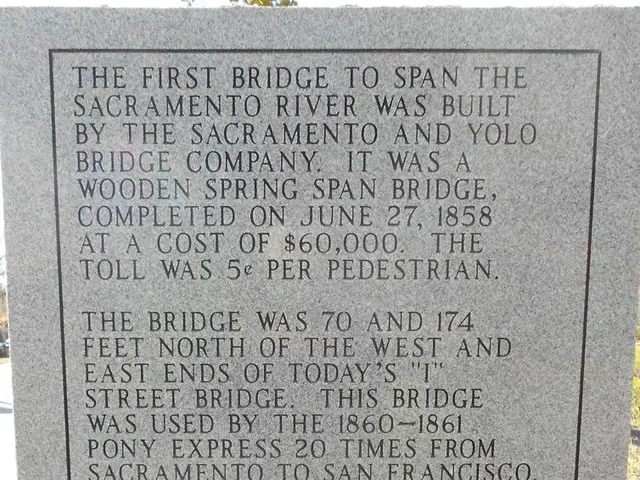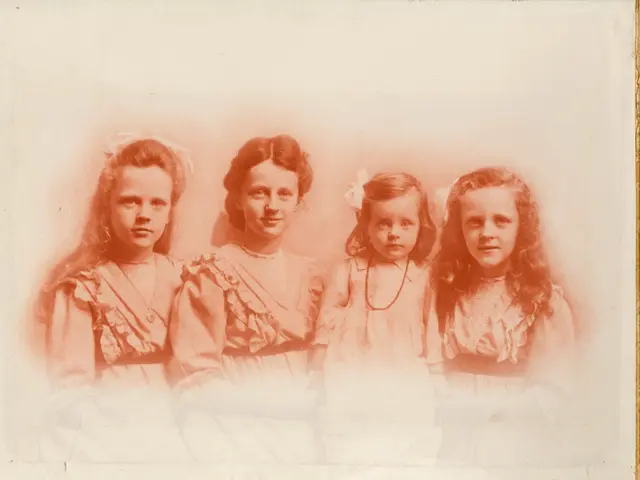Exploring Marie Curie's Remarkable Impact on the Study of Radioactivity
Hey there! Let's dive into the story of Marie Curie, a scientific trailblazer whose resilience, curiosity, and genius forever changed the world. Born on November 7, 1867, in Warsaw, Poland, as Maria Skłodowska, she grew up in a family that cherished education. Her father, a mathematics and physics teacher, nurtured her interest in the sciences from a young age.
Despite the family's financial struggles following her mother's death and her father's job loss, Marie's spirit remained unbroken. She became involved in the clandestine “Flying University,” a Polish institution defying the oppressive Russian Empire's regulations. There, she honed her scholarly skills, but the political climate constrained her academic ambitions.
Determined to venture beyond her homeland's constraints, Marie moved to Paris in 1891 to attend the University of Paris (Sorbonne), where she studied physics and mathematics, often living in near poverty while dedicating herself fully to her studies. Against countless odds, she excelled and began delving into scientific research.
In 1894, she met her intellectual equal, Pierre Curie, a highly respected physicist. Their shared passion for science quickly turned into an unshakable collaboration, both inside and outside the lab. Together, the Curie duo braved modest lab conditions to study Henri Becquerel's mysterious radiation. This partnership led to the discovery of two new elements: polonium, named after Marie's beloved homeland, and radium.
Their work earned international acclaim, and in 1903, they were awarded the Nobel Prize in Physics. Marie Curie had already broken the gender barrier in science by becoming the first woman to be honored with a Nobel Prize. Tragedy struck in 1906 when Pierre was tragically killed in a street accident, but Marie's spirit remained unwavering.
She took over Pierre's teaching position at the Sorbonne, becoming the first woman to teach there, solidifying her academic standing and shattering yet another barrier for women. Curie's perseverance paid off once more in 1911, when she was bestowed the Nobel Prize in Chemistry for her discovery of radium and polonium and her groundbreaking research on radioactivity. She is the only individual to have won Nobel Prizes in two distinct scientific fields.
Marie Curie's impact on medicine is immense. During World War I, she recognized the potential of X-rays on the battlefield and developed mobile radiography units called “Little Curies.” These innovative tools assisted surgeons in locating injuries and saved countless lives. The medical innovations she initiated laid the foundation for further advancements in cancer therapy.
Marie Curie's legacy will never fade. She established the Radium Institute in Paris and inspired generations of women to pursue careers in STEM fields. Her life's work continues to influence scientific discoveries, medical treatments, and technological advancements, serving as a shining example of what dedication, resilience, and curiosity can achieve in the face of seemingly insurmountable opposition.
In conclusion, Marie Curie's life is a story of triumph, perseverance, and the power of curiosity. Her groundbreaking research revolutionized our understanding of radioactivity, impacted medical practices, and fostered technological advancements. Her legacy continues to inspire scientists and advance humanity towards new horizons of knowledge and discovery. As Curie said, "Nothing in life is to be feared, it is only to be understood." 💡🔬🚀
- Marie Curie's discoveries in the realm of science, particularly radioactivity, have paved the way for advancements in fields such as health and wellness, fitness and exercise, and environmental science.
- Her research in radioactivity has been instrumental in the development of various therapies and treatments for medical conditions, expanding our understanding of skin care and mental health.
- Just as her discoveries contributed to the understanding of the environment, Marie Curie's work in nutrition and healthy diets has emphasized the importance of maintaining a balanced diet for overall health and women's health, particularly during significant periods like menopause.
- Marie Curie's legacy extends beyond her scientific achievements, as her life serves as an inspiring example for individuals pursuing careers in STEM fields, instilling in them the values of resilience, curiosity, and dedication.
- In the realm of space and astronomy, Marie Curie's contributions have sparked interest in science and stayed relevant, encouraging exploration and discovery in outer space.
- The innovations in medical technology and practices initiated by Marie Curie, such as mobile radiography units, have played a crucial role in climate change mitigation efforts by improving healthcare services in remote areas.
- Marie Curie's life stands as a testament to the power of science in influencing not only the immediate world around us but also envisioning a better future for humanity, shaping the course of scientific progress for generations to come.








